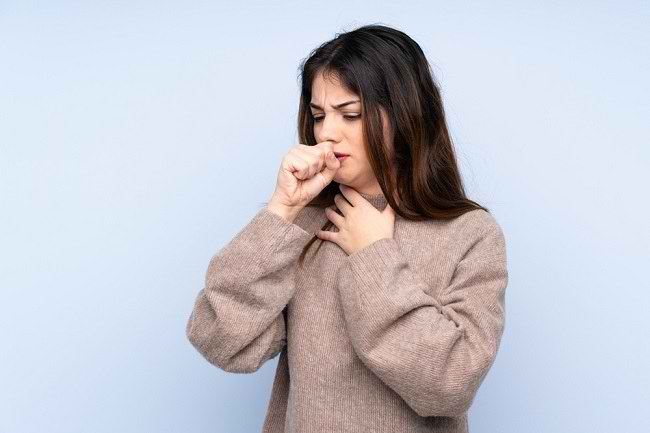Know the Differences in Bronchitis and Pneumonia
Although both cause cough with phlegm and shortness of breath, bronchitis and pneumonia are 2 different conditions. The difference between bronchitis and pneumonia lies not only in the location of inflammation, but also in the causes, severity of symptoms, and treatment.
Airway inflammation can be caused by a bacterial, viral, or fungal infection. However, bronchitis is almost always caused by viruses, especially common cold viruses and influenza viruses, whereas most pneumonia cases occur due to bacterial infections.

Differences in bronchitis and pneumonia based on the location of inflammation
The human airway starts from the nose, throat, trachea, bronchi, to the lungs. The bronchi are tubular and branch into smaller parts in the lungs. Small bronchial branches will be in contact with the alveoli. Alveoli are tissue in the lung that is shaped like a sac and contains air. In alveoli, oxygen exchange takes place from the air to the bloodstream.
In the case of bronchitis, inflammation occurs in the bronchi and causes the bronchial wall to produce a lot of fluid. As a result, people with bronchitis become difficult to breathe, tightness, and cough.
While in pneumonia, inflammation occurs in the alveoli, so that the alveolar sac that should be filled with air actually filled with fluid or pus. This makes it difficult for oxygen to enter the bloodstream, and makes pneumonia sufferers experience shortness of breath and cough.
Differences in bronchitis and pneumonia in terms of symptoms
Bronchitis tends to cause symptoms that are milder than pneumonia. Some of the symptoms that mark bronchitis are:
- Coughing up phlegm with clear, yellowish or greenish phlegm color
- Mild fever
- Shortness of breath or feeling of fullness in the chest
- Nasal congestion and runny
- Sore throat
- Limp, tired, lethargic
- Headache
Meanwhile, pneumonia often causes more serious symptoms. This is because the filling of alveoli by fluid or pus can complicate the exchange of oxygen from the air to the blood. As a result, the body's tissues and organs will lack oxygen. If left unchecked, these conditions can cause death.
Some examples of pneumonia symptoms are:
- Coughing up phlegm with yellow, greenish or bloody phlegm color
- High fever (40 0 C or more) with chills
- Shortness of breath or frequency of breathing becomes very fast
- Cold sweat comes out
- Chest pain, especially when breathing deeply or coughing
- Nausea and vomiting
- Confusion occurs, especially in elderly patients
Bronchitis is generally acute, which appears suddenly and worsens rapidly. This condition can usually resolve on its own within 1-2 weeks.
Whereas pneumonia usually lasts longer. Someone should suspect that bronchitis has developed into pneumonia if he coughs for more than 3 weeks.
Differences in bronchitis and pneumonia in terms of treatment
Treatment of bronchitis and pneumonia will be adjusted according to the cause of the infection. Bronchitis and penumonia caused by bacterial infections will be treated with antibiotics, whereas those caused by viral infections usually only require treatment with fever-lowering drugs, consumption of enough fluids to prevent dehydration, and plenty of rest.
Because most bronchitis cases are caused by a viral infection, treatment often does not require antibiotics. This is different from pneumonia which is mostly caused by bacterial infections and requires antibiotics.
That's the difference between bronchitis and pneumonia. Both of them cause symptoms of cough with phlegm and shortness of breath. However, pneumonia symptoms are generally more severe and are accompanied by high fever, chills, cold sweat, and chest pain.
Some cases of bronchitis can also develop into pneumonia, so that a person may experience bronchitis and pneumonia simultaneously.
If you experience a cough with phlegm accompanied by high fever, shortness of breath, and chest pain, you should immediately see a doctor. If the doctor says that you have bronchitis or pneumonia, during your treatment from the doctor, get enough rest, drink plenty of water, and if possible, use a humidifier.
Written by:
Irene Cindy Sunur
Label : Health
Comments
Post a Comment